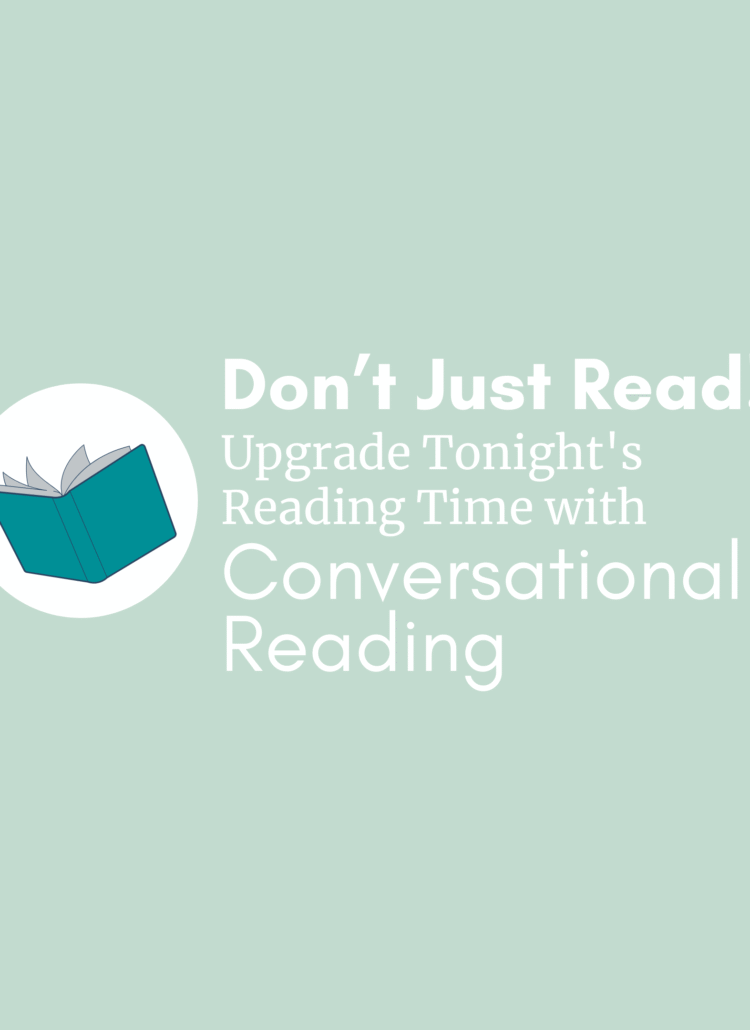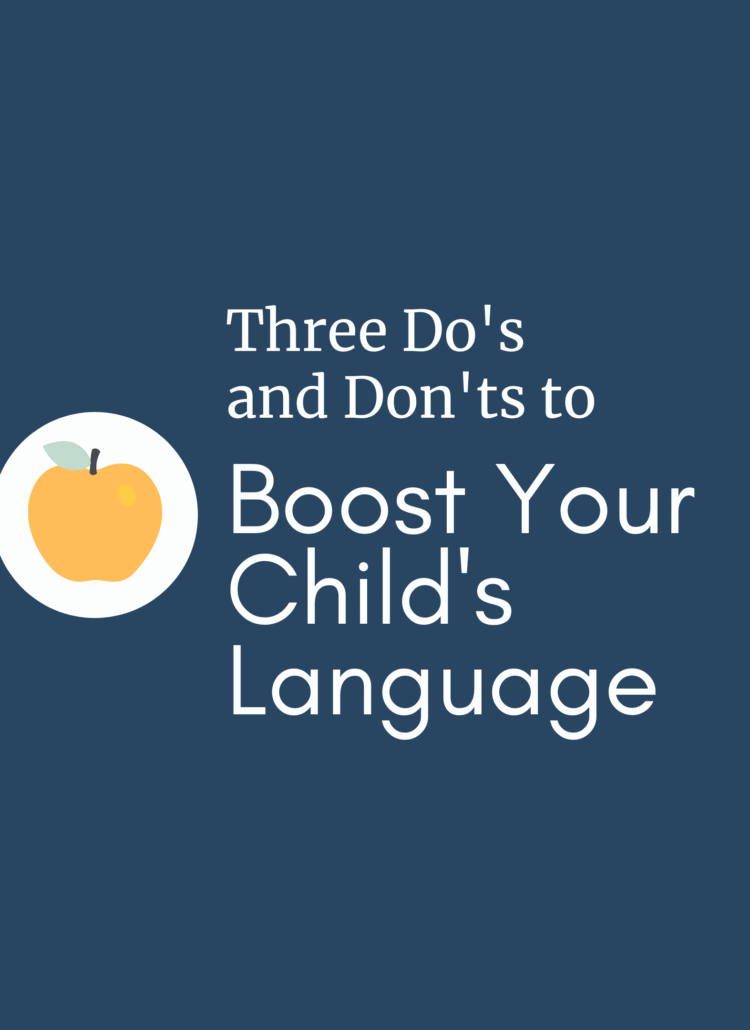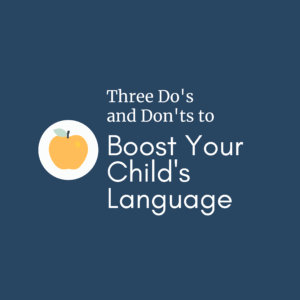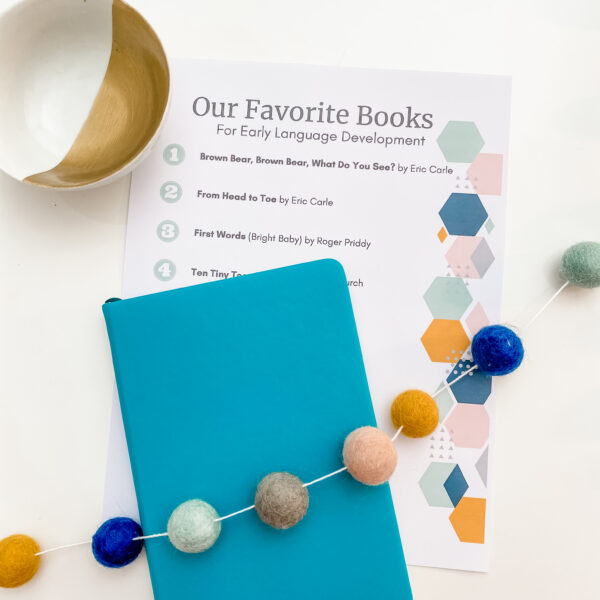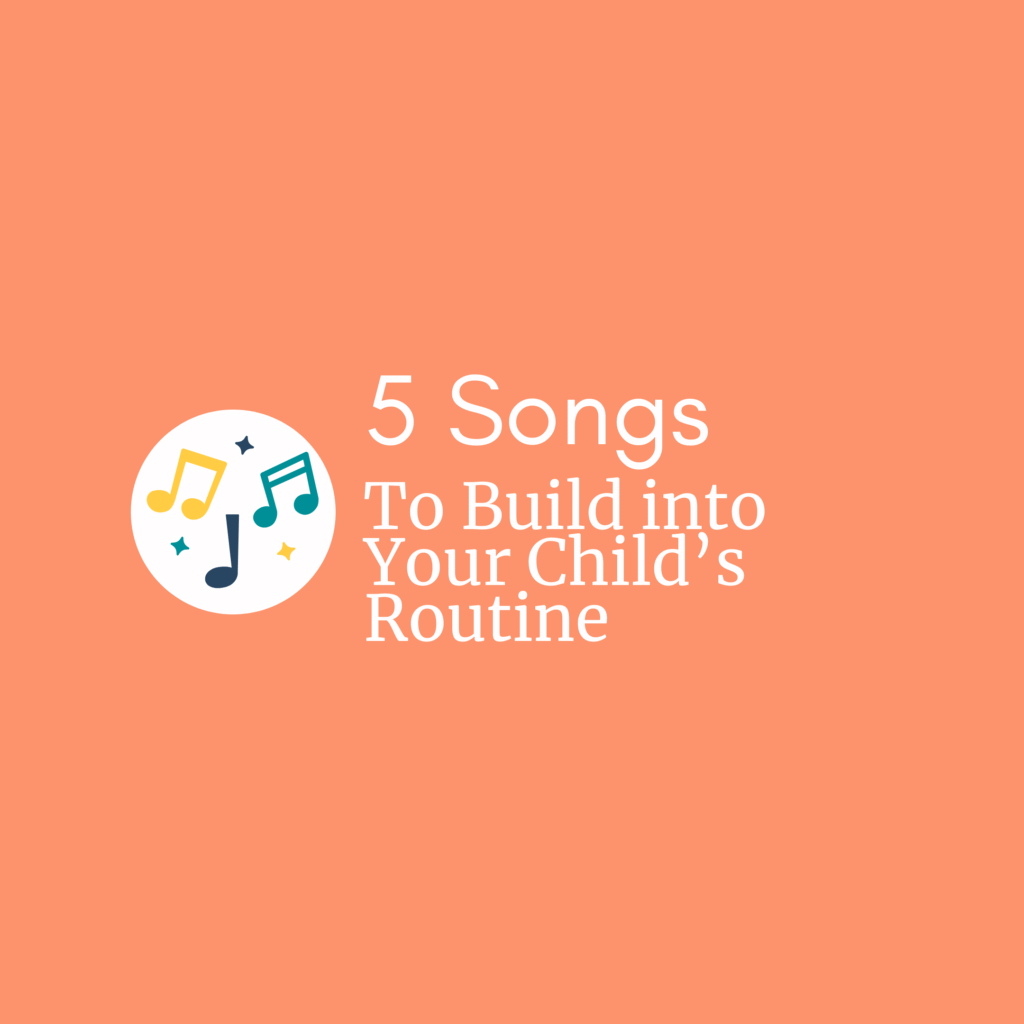
I grew up in a family of 6 children. We were more of a late-night family than an early morning family.
So, when those early mornings needed to happen (you know – school, Saturday games, team competitions), my parents turned to their secret weapon for getting us up and out of bed.
They sang.
Not a lovely, I-want-to-wake-you-up-gently song.
It was the fight song for their college alma mater. Loud. Peppy. Joyful.
Exactly what you DO NOT want to hear when you just want to stay in bed. But it worked!
It was a song that got us up and going. And it was built into the routine of getting up in the morning.
My parents were on to something.
Building singing into family routines helps with transitions and supports language development.
⬇️Here are five songs to consider building into your family’s routines.
(No college fight song required.)
Why Sing?
There are lots of benefits for using songs in routines.
In general, music activates multiple areas of the brain and has been found to help support cognitive functions such as memory and attention span (Toader et al., 2023). Memory and attention are two key ingredients to creating successful routines.
It is also interesting to note that using your voice to sing makes a difference. One study found that babies preferred songs that were sung over instrumental music (Franco et al., 2022).
Additionally, singing songs supports language development. The same study also found that higher rates of parents singing to their children were associated with better language outcomes (Franco et al., 2022).
Singing also is effective in calming and soothing when children are upset. Researchers found that mothers singing to soothe their children was more effective than mothers using words to provide comfort (Trehub et al., 2015).
Singing really is the not-so-secret spice to add to successful daily routines!
Songs in Routines
So, where to start?
What if you want to incorporate songs into your routines but don’t know exactly how.
Here are five common routines and a song that could be incorporated into each one.
NOTE: The suggested songs linked below are just that – suggestions! Don’t play the video for your child but instead use the video to learn the song. If you choose to use one, listen to the recording a few times so you are familiar with it. Then feel free to modify the words so they fit you and your family.
Waking Up
Some little one need a little help waking up (and, I know – others are up before the sun!)
In either situation, a simple “Good morning” song can help bring joy and learning to the everyday routines of getting up.
Song suggestion
Getting Dressed
Getting children undressed/dressed happens SO. MANY. TIMES. EACH. DAY. (Why?!?)
Instead of feeling frustrated that you have changed your child’s outfit for the 147th time today, embrace it as a learning opportunity by pairing the activity with singing a song.
Song suggestion
Putting on Shoes
Getting shoes on tiny feet is sometimes the most frustrating thing that needs to happen when you are rushing to get out the door.
Maybe this is a great time to add a song.
It might be soothing for you AND your child!
Song suggestion
Buckling Up
Some little ones really struggle getting buckled into a car seat. And some don’t at all!
In either case, adding a song while arranging arms and legs and buckling can add a little magic, learning, and connection to a very functional task.
Song suggestion
Bathtime
Washing little arms and legs is a perfect time to connect with a song.
For this routine, you can really use almost any tune and make up new words.
Here is one idea.
Song suggestion
Try it Out
You DON’T need to add a song to every routine in your day.
Choose one. One routine that could use a little mini-makeover.
Listen to the suggested song.
Use the tune and make up your own words.
Don’t reinvent a new song each day. Repetition is key here.
Use the same song in the same routine every day.
And just like that you and your child are on your way to language, learning, and connection!
References
Franco, F., Suttora, C., Spinelli, M., Kozar, I., & Fasolo, M. (2022). Singing to infants matters: Early singing interactions affect musical preferences and facilitate vocabulary building. Journal of Child Language, 49, 552-577. https://doi.org/10.1017/S0305000921000167
Toader, C., Tataru, C. P., Florian, I. A., Covache-Busuioc, R. A., Bratu, B. G., Glavan, L. A., Bordeianu, A., Dumitrascu, D. I., & Ciurea, A. V. (2023). Cognitive Crescendo: How Music Shapes the Brain’s Structure and Function. Brain sciences, 13(10), 1390. https://doi.org/10.3390/brainsci13101390
Trehub, S.E., Ghazban, N. and Corbeil, M. (2015), Musical affect regulation in infancy. Ann. N.Y. Acad. Sci., 1337: 186-192. https://doi.org/10.1111/nyas.12622
